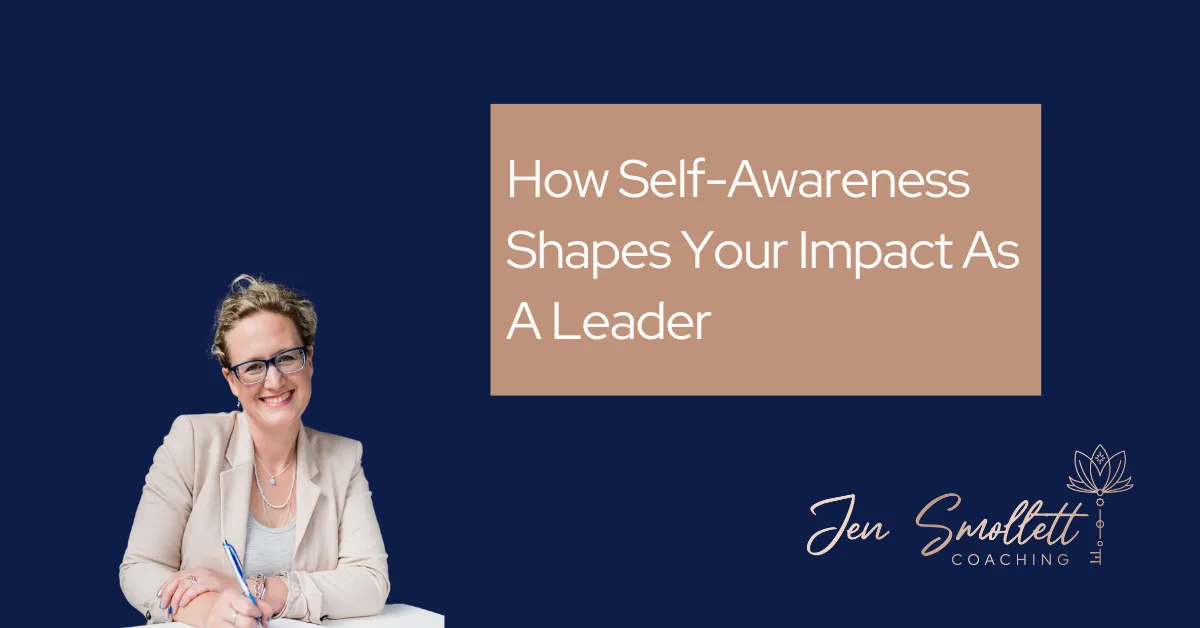
How self-awareness shapes your impact as a leader
Leadership is not just about what you say. It’s about what people experience when you say it.
You can have the right strategy, clear goals, and all the qualifications in the world, but if your presence doesn't land the way you intend, your impact as a leader will be limited.
At the heart of that disconnect is often one key skill: self-awareness.
Self-awareness is the foundation of conscious, effective leadership. It helps you understand how your emotions, behaviours, and energy affect the people around you. And without it, even the best intentions can miss the mark.
What is self-awareness in leadership?
Self-awareness is your ability to recognise what is going on inside you - your thoughts and emotions, what is going on around you - your behaviour and how people around you perceive you.
In leadership, that means being able to answer questions like:
How do I come across in meetings or under pressure?
What impact does my tone or body language have on others?
What patterns do I fall into when things feel uncomfortable or uncertain?
The more self-awareness you build, the more choice you have in how you lead. Instead of reacting automatically, you can respond intentionally.
Why self-awareness makes such a difference
Here’s what self-awareness unlocks in leadership:
1. Clearer communication
You notice not just what you’re saying, but how you’re saying it. You tune into your non-verbal signals and adjust in the moment if needed.
2. Stronger relationships
People feel safer and more seen when they are led by someone who is aware of their own impact. Trust builds faster when communication feels calm, honest, and considered.
3. Better decision-making
Self-awareness helps you spot your own biases, emotional triggers, and mental filters. That means you’re less likely to make reactive or emotionally driven decisions.
4. Confidence that doesn’t rely on performance
When you know yourself deeply, you don’t need to ‘act’ confident. You simply lead from a place of grounded clarity. That kind of confidence is sustainable.
What happens when self-awareness is missing?
Without self-awareness, you might notice:
Your feedback isn’t landing the way you hoped
People are withdrawing or misunderstanding your intentions
You’re being told to “be more confident” but don’t know how
You know who you want to be as a leader, but you’re not sure how to consistently show up that way.
So how do you build self-awareness?
Like any skill, self-awareness can be developed. It starts with creating space to pause, reflect, and tune in. That might mean journalling after a meeting, practising mindfulness, or seeking honest feedback.
But it’s much easier to develop when you understand how to build it, how to strengthen your emotional intelligence and how to know how your own energy and presence influences others.
That’s exactly what we’ll be doing in my upcoming masterclass.
Join me for Conscious Leadership in Action
If you’re ready to explore how self-awareness and emotional intelligence can shift the way you lead, this masterclass is for you.
Conscious Leadership in Action is a 90-minute live training designed to help you lead with more clarity, presence, and purpose.
You’ll learn:
What conscious leadership looks like in practice
How to develop emotional intelligence in real-life leadership situations
Practical tools to regulate emotions, stay grounded, and communicate with intention
Price: £30
Location: Live on Teams
Replay available for 7 days
Link to join is [here]
